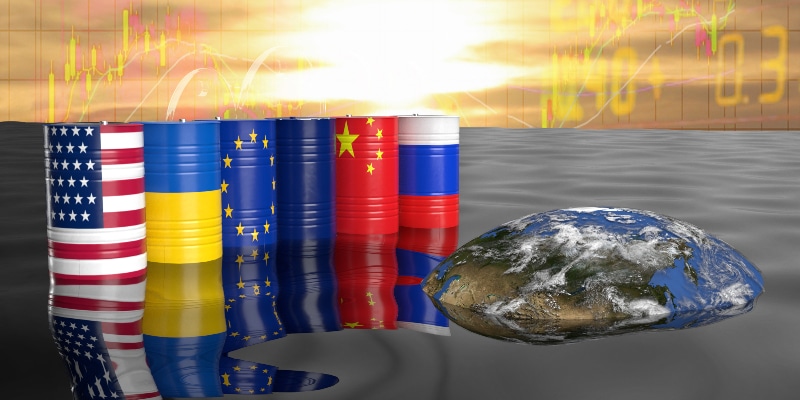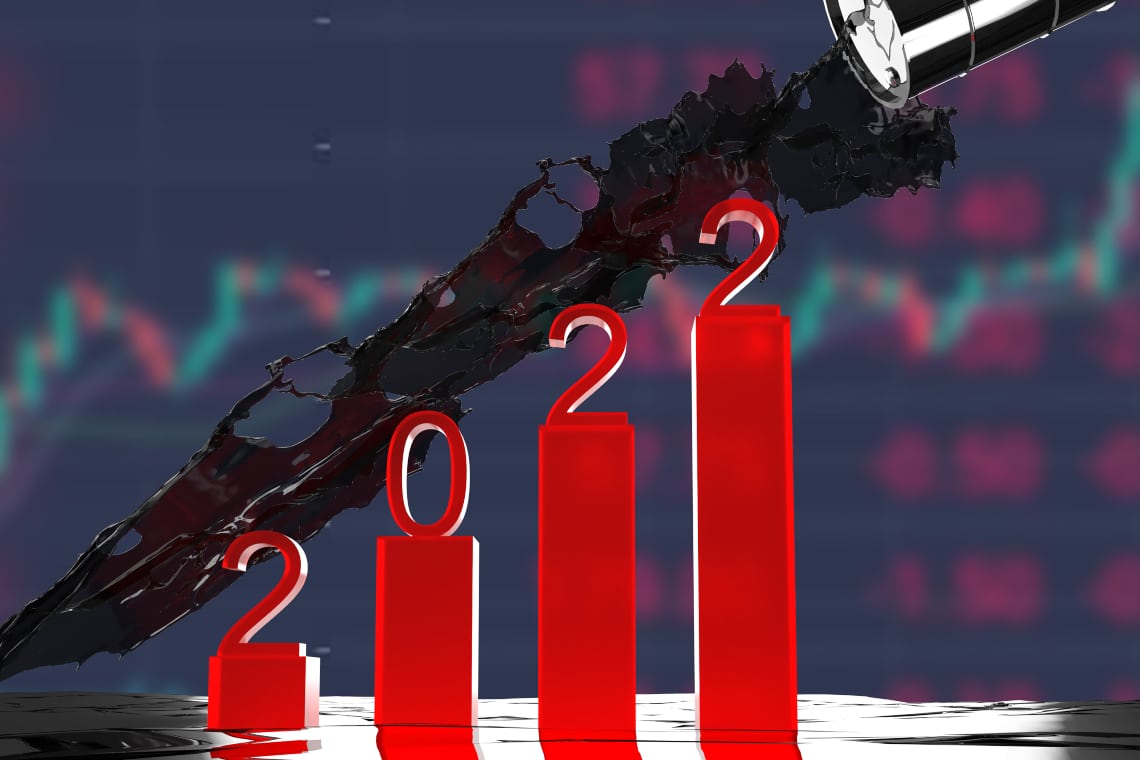The situation is certainly not the best, whichever way you look at it there are problems to deal with, the good news is that countermeasures are being taken in a decisive way, the bad news is that normality in the markets is far from coming.
Summary
The future of Oil for Europe

In a complicated macroeconomic environment that sees a return of the American, Russian, and this time even Chinese superpowers back to bygone eras, one of the countermeasures the Kremlin would like to take to deal with sanctions from the international community are of great concern.
The topic is oil, and Putin’s idea would be to reduce by 3 to 5 million barrels the supply of the black gold to so-called hostile countries, thus including Europe.
With Wti oil at 108.83 US dollars and Brent crude at 112.07 dollars JP Morgan entertains us with yet more bad news.
According to the famous investment bank, oil could even go as high as $150 or even $380 a barrel if there is such a strict restriction from Putin to Europe.
The measure could be the way the Kremlin intends to protect itself from international sanctions but if so it would be a huge problem that would trigger crises in transportation, automotive and logistics. In other words, a real catastrophe.
In a note to clients, JP Morgan analysts wrote.
“The nations of the Group of Seven are developing a complicated mechanism to limit the price reached by Russian oil in an attempt to tighten the screws on Vladimir Putin’s war machine in Ukraine. But given Moscow’s strong fiscal position, the nation can afford to reduce daily crude oil production by 5 million barrels without unduly damaging the economy”.
Situation on stock markets
This does not seem to affect premium brands, or at least not Ferrari, which ends a month slightly up, a trend confirmed today where RACE (Ferrari) gains +2% and analysts are still projecting the stock to rise this week.
Despite oil having little influence on a company that makes electric cars, Tesla sees red and drops 0.83%.
The trend of the company of the world’s richest man is affected by the second quarter result that is now upon us and does not bode well.
The forced closure of the Shanghai gigafactory, the difficulty in the supply of some raw materials and the prolonged crisis actually make the Berlin and American gigafactories real money-burning machines.
Elon Musk predicted hard times but also posed a much-discussed solution, the reduction of staff by 10%.
Musk’s plan targeting a 10% cut in the salaried workforce with an increase in the hourly workforce has begun and 200 employees have been laid off from the San Mateo offices in California.
The office in question was in charge of the development of autonomous driving and artificial intelligence projects, and this raises doubts about the company’s future plans by also putting on the table the discussion of whether or not some major projects will continue.
Other employees have been fired in other offices and have filed a multimillion-dollar lawsuit against the company for alleged formal flaws in the dismissal related to missed notice periods.
Since the beginning of the year, the (TSLA) stock has lost a third of its value to date.
Curious is the case of the franc, which since the beginning of the year has increasingly taken on the role of the twin currency of the euro essentially equaling it in the exchange ratio (1.00097 euros).
The value is very close to the exchange rate found at the end of March, and this apparently seems to tie the results of the continent’s most important currencies to the arrival of quarterly reports (which is unlikely) or simply to micro-cycles of three-month value that vary by a few points.
The euro dominates all other currencies except the ruble, which despite having a disadvantageous exchange ratio recovers another 1.58% gaining 0.36% on the euro.
Looking more broadly at the markets in general, also due to holiday US day, there is a pump and dump day in the Piazza Affari with a strong rise at the start only to continue with a sharp drop, the FTSE MIB coming in at +0.70%.

